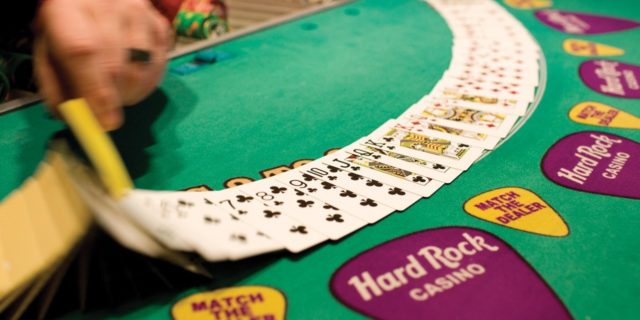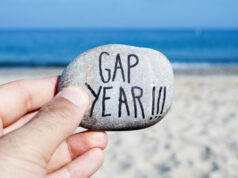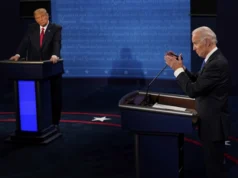
South Florida racetrack casino owners merely shake their head when they asked how they can “compete” with the Seminole Hard Rock Hotel & Casino in Hollywood, and my recent calculations explain why.
It’s because the Seminole Hard Rock’s haul for the past fiscal year ending June 30, 2016, totaled more than $579 million. That’s more than all eight pari-mutuel casinos earned combined. Talk about an uphill battle…
The tribe is not required to release its per-casino revenue figures but by criss-crossing two state documents, I computed the figures.
The Seminoles reported a $2.3 billion overall revenue figure for 2015-16 to the state. They give Florida that overall number so they can figure out how much money they pay as part of their compact: they pay a greater percentage as their revenues climb. That’s the first document I use; the second, the Local Government Annual Distribution Worksheet, comes into play because some of the tribe’s payments to the states are distributed to local governments. It’s pro-rated based on how profitable each of their seven casinos are. For example, the Hard Rock Hollywood was responsible for 24.9 percent of the Seminoles’ 2015-16 revenues, according to figures just computed and released earlier this summer. That means 24.9 percent of the portion for local governments was divided among municipalities near that casino. And 24.9 percent of $2.3 billion gets me to that $579 million.
The eight Broward and Miami-Dade horse tracks, dog tracks and jai-alai frontons collected $537 million in slots and $41 million in poker, for a total of $578 million.
But the Seminoles’ big money isn’t even the Hard Rock Hollywood. It’s the Seminole Hard Rock Hotel & Casino in Tampa, which took in $967 million. The Tampa casino has no competition in west-central Florida, where racetracks can’t offer slots.
The Seminole Hard Rock Hollywood was next, followed by Seminole Coconut Creek ($383 million). Even Seminole Classic Casino, the old bingo hall south of Sterling Road in Hollywood, bested the gambling revenues at every South Florida racetrack casino. Seminole Classic took in $163 million. The Isle Casino and Racing in Pompano led South Florida racinos ($143 million via slots, $10 million via poker).
The owners of horse tracks, dog tracks and jai-alai frontons say they are saddled with expenses for their pari-mutuel side, which is generally declining. They also must pay a 35 percent tax on slot revenues, as well as other fees. A bill to reduce the slot tax to 25 percent and add blackjack at the racetrack casinos died in the Florida legislature this year.
And both the Seminole Hard Rocks are growing. The Seminole Hard Rock in Hollywood opened in 2004, and the adjacent Seminole Paradise came along with bars, restaurants and shops a few months later. But the Seminoles began demolishing that area this spring after announcing plans for a second, guitar-shaped hotel, which will also have more gambling. The current hotel runs at about 95 percent occupancy, tourism officials say.
The Miccosukee Tribe, which has a casino in west Miami-Dade, doesn’t have a compact with the state and offers only slots, so none of its figures are public.
Nationally, Indian gaming recently passed commercial casinos in gambling revenues, collecting $30.5 billion to $29.8 billion at the hotel-casinos you see in Las Vegas, Atlantic City and elsewhere. (The numbers are through 2015, the most recent year available, and compiled in Alan Meister’s annual Casino City Indian Gaming Industry Report.) Federal law allows the tribes to offer the same styles of gambling that commercial casinos do, but without paying taxes. The tribes then negotiate agreements, called compacts, with the state to pay more money to offer features over and above the commercial casinos. That was the case with the Seminoles, who have had a compact with the state to offer blackjack and other table games, while paying more than $200 million a year.
I speculated earlier that Indian gaming would expand their advantage over commercial casinos, and in Florida, that’s true. The Seminoles were projected to have a $100 million increase in the fiscal year that just ended; state statistics show the racetrack casinos were up only $15 million. But experts I talked to say geography will keep the competition more level; too many Native American casinos are in remote locations, rather than in the heart of a city.
Florida is also unique because some legislators view the Seminoles as sort of a firewall: make a deal with them to help state revenues – while keeping casino resort-hotel expansion at bay. They’ve found a good, trustworthy partner in the Seminoles, who have done a lot of smart things both locally and nationally under CEO James Allen.
For years, we have intuitively noted that the tribe is crushing everyone. But now the stats show that in South Florida one casino is crushing everyone combined.












